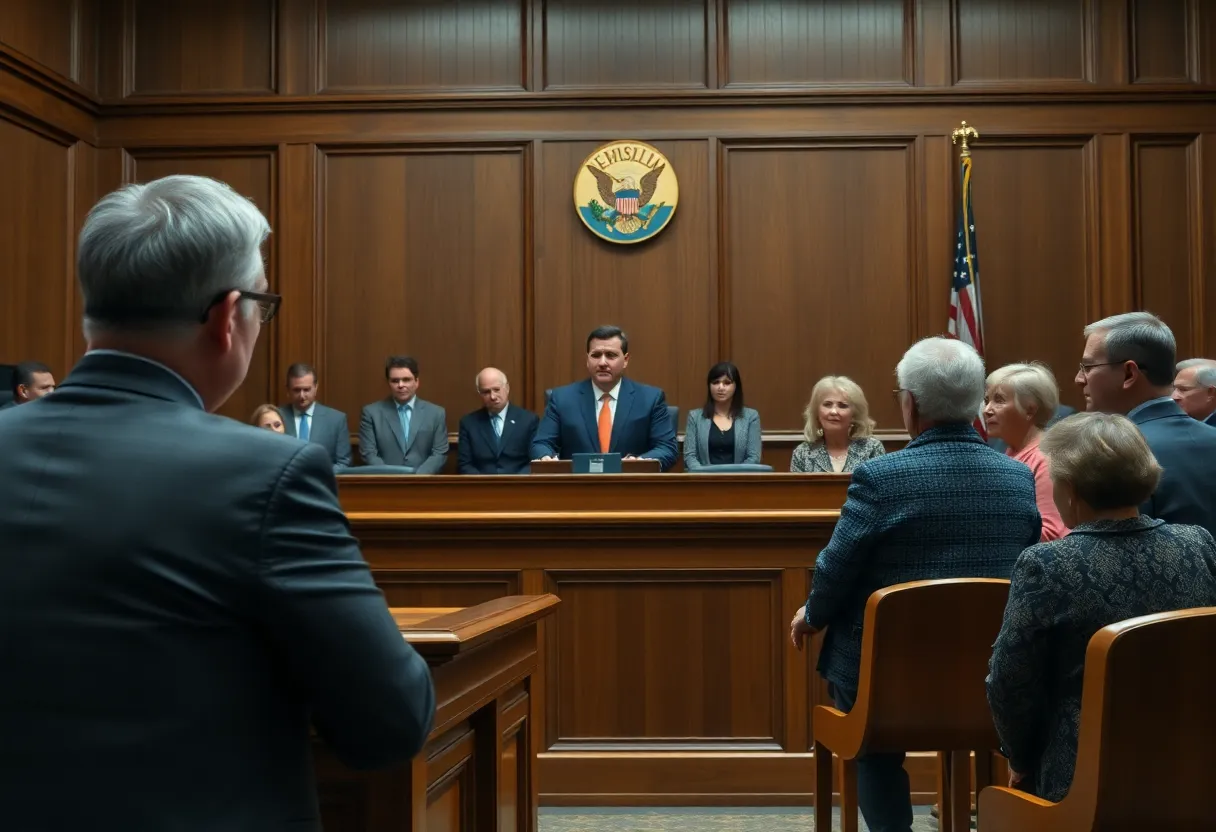News Summary
Historic Mesothelioma Case Leads to $3.45 Million Verdict
In a landmark ruling, a Virginia jury recently awarded a staggering $3.45 million to Patricia Katcham following her husband’s tragic bout with mesothelioma. James Katcham, who succumbed to this aggressive and often lethal cancer, was exposed to asbestos during his employment at the DuPont Spruance plant in Virginia. His exposure originated from working with products containing deadly asbestos fibers, ultimately leading to his devastating diagnosis.
The Deadly Link: Mesothelioma and Asbestos
Mesothelioma is recognized as a rare form of cancer that primarily affects the lining of the lungs and abdomen, and asbestos exposure is the sole known cause. James Katcham’s case highlights the harsh realities faced by many who have worked in industrial trades. Before his untimely demise, Katcham provided testimony indicating he frequently dealt with gaskets and packing materials for valves and pumps manufactured by John Crane, Inc.—the defendant in this lawsuit.
A Familiar Trade: The Risks of Industrial Work
Throughout his career, Katcham utilized a variety of tools including hammers, hand scrapers, and power wire brushes while handling products laden with asbestos. Tragically, these industrial activities released hazardous asbestos fibers into the air, which can be inhaled or swallowed, leading to severe health complications. As a result of this exposure, Katcham developed mesothelioma and ultimately passed away, leaving his family to fight for justice.
Negligence at its Core: Holding Companies Accountable
During the trial, the legal team for Katcham argued that John Crane was negligent for not warning workers about the dangers associated with asbestos exposure from their products. They emphasized that the company continued to sell these hazardous items without adequate safety warnings, putting countless workers at risk.
The Rising Tide of Mesothelioma Cases
The case of Patricia Katcham mirrors a troubling trend in the workforce, particularly for those employed in industries where asbestos exposure is an inherent risk. Gaskets produced in the early to mid-20th century are notorious for containing asbestos, posing a significant danger to workers who often unknowingly inhaled harmful fibers. The ramifications of this exposure can be devastating and life-altering, leading many affected individuals to seek justice and compensation for their suffering.
Support and Resources for Affected Individuals
For individuals like Patricia Katcham and their families, resources exist to assist in navigating the complicated world of asbestos exposure claims. Organizations dedicated to raising awareness and providing support, such as Mesothelioma Guide, offer various programs, including a Doctor Match Program to help individuals access appropriate medical care. They also provide free assistance with VA claims and guidance on filing for financial compensation.
Veterans at Risk: Navigating Benefits
Veterans are disproportionately affected by mesothelioma due to their prior military occupations, particularly those who served in the Navy from the 1930s to the 1980s, where asbestos usage was rampant. The Veterans Affairs (VA) provides several benefits for veterans who develop mesothelioma as a service-connected condition. The Dependency and Indemnity Compensation (DIC) program provides monthly benefits for the families of veterans who have passed due to service-related illnesses, such as mesothelioma.
Claims and Compensation: A Complex Process
To qualify for DIC, at least 50% of the veteran’s asbestos exposure must have occurred during their military service. The VA is known for its efficiency, showing average processing times for DIC claims as brief as 60 days if adequate documentation is available. The monthly benefits for surviving spouses begin at $1,653.07, with additional provisions for dependent children.
Raising Awareness
The ongoing battle against asbestos-related diseases emphasizes the need for increased awareness among veterans and their families about exposure risks and available healthcare options. Education on asbestos exposure is crucial to facilitate timely medical intervention and navigate the intricate VA benefits system effectively.
As the landscape surrounding asbestos continues to evolve, it is imperative that society remains vigilant in protecting the health and safety of workers and their families, ensuring that justice is served for those impacted by these preventable conditions.
Deeper Dive: News & Info About This Topic
HERE Resources
Southern California Residents on High Alert: Are Wildfires Hiding More Than Just Smoke?
Danger Looms: As Natural Disasters Rise, So Do Asbestos Exposure Risks
Edison Public Library to Undergo Asbestos Removal, Closure Scheduled
Proposed FDA Rule to Tighten Regulations on Talc-Containing Cosmetics Due to Asbestos Concerns
Asbestos Risks Soar Amid Ongoing Conflict in Israel
FDA Takes Big Steps to Tackle Asbestos in Talc
FDA Proposes Bold Move to Combat Asbestos in Talc-Containing Cosmetics
FDA Takes Bold Steps to Tackle Asbestos in Talc-containing Cosmetics
FDA Proposes Life-Saving Rules to Tackle Asbestos in Cosmetics
New FDA Proposal Targets Asbestos in Talc-Containing Cosmetics



















